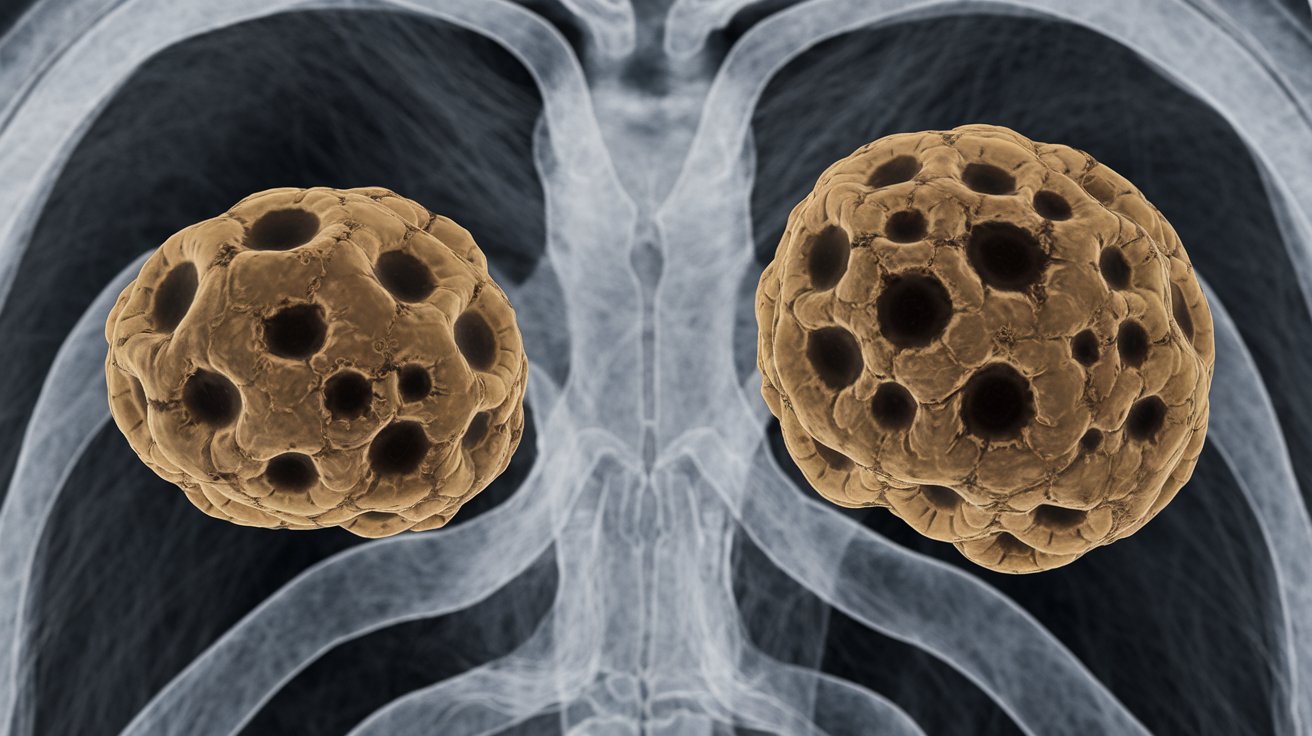
Pseudo-Cushing's Syndrome can be a confusing condition. It's often mistaken for Cushing's Syndrome due to similar symptoms like weight gain, high blood pressure, and fatigue. However, the causes differ. Pseudo-Cushing's is usually linked to factors like chronic stress, depression, or alcoholism. Understanding these differences is crucial for proper diagnosis and treatment. This article will provide 35 facts to help you grasp the nuances of this condition. From symptoms to causes and treatments, you'll get a clear picture of what sets Pseudo-Cushing's Syndrome apart. Ready to learn more? Let's dive into these essential facts.
Key Takeaways:
- Pseudo-Cushing's Syndrome can be caused by factors like alcohol abuse, depression, obesity, and stress. It mimics Cushing's Syndrome and requires careful diagnosis and treatment tailored to the underlying cause.
- Treatment for Pseudo-Cushing's Syndrome focuses on addressing the root cause, such as reducing alcohol intake, managing stress, and using medications if necessary. Long-term management involves regular monitoring, healthy lifestyle choices, and mental health support.
What is Pseudo-Cushing's Syndrome?
Pseudo-Cushing's Syndrome is a condition that mimics Cushing's Syndrome but is caused by factors other than a tumor. It can be tricky to diagnose due to its similarities with true Cushing's Syndrome. Here are some intriguing facts about this condition.
-
Pseudo-Cushing's Syndrome is often linked to chronic alcohol abuse. Excessive alcohol consumption can lead to symptoms that resemble Cushing's Syndrome.
-
Depression is another common cause. Severe depression can alter cortisol levels, leading to symptoms similar to Cushing's Syndrome.
-
Obesity can also trigger Pseudo-Cushing's Syndrome. Excess body fat can influence hormone levels, causing symptoms like those of Cushing's Syndrome.
-
Polycystic Ovary Syndrome (PCOS) is sometimes associated with Pseudo-Cushing's Syndrome. Women with PCOS may experience elevated cortisol levels.
-
Stress plays a significant role. Chronic stress can lead to elevated cortisol levels, mimicking Cushing's Syndrome.
Symptoms of Pseudo-Cushing's Syndrome
The symptoms of Pseudo-Cushing's Syndrome can be quite similar to those of true Cushing's Syndrome, making it challenging to distinguish between the two.
-
Weight gain, particularly around the abdomen, is a common symptom.
-
Round face or "moon face" is another typical sign.
-
High blood pressure is frequently observed in individuals with Pseudo-Cushing's Syndrome.
-
Muscle weakness can occur due to the imbalance in cortisol levels.
-
Fatigue is a prevalent symptom, often making daily activities challenging.
-
Mood swings and emotional instability are common, especially in cases linked to depression.
-
Purple stretch marks on the skin, particularly on the abdomen, thighs, and breasts.
-
Thinning skin that bruises easily is another symptom.
-
Acne and other skin problems can also be signs of Pseudo-Cushing's Syndrome.
Diagnosis of Pseudo-Cushing's Syndrome
Diagnosing Pseudo-Cushing's Syndrome involves a series of tests to differentiate it from true Cushing's Syndrome.
-
24-hour urinary free cortisol test is often used to measure cortisol levels over a day.
-
Dexamethasone suppression test helps to determine how cortisol levels respond to synthetic steroids.
-
Late-night salivary cortisol test measures cortisol levels at night when they should be lowest.
-
Blood tests can help rule out other conditions and check for elevated cortisol levels.
-
Imaging tests like CT scans or MRIs may be used to rule out tumors.
-
Psychiatric evaluation might be necessary if depression or anxiety is suspected as a cause.
Treatment Options for Pseudo-Cushing's Syndrome
Treatment focuses on addressing the underlying cause of the condition.
-
Reducing alcohol intake is crucial for those whose condition is linked to alcohol abuse.
-
Managing stress through techniques like meditation, yoga, or therapy can help lower cortisol levels.
-
Antidepressants may be prescribed if depression is the underlying cause.
-
Weight loss through diet and exercise can help manage symptoms in obese individuals.
-
Medications that block cortisol production might be used in some cases.
-
Cognitive-behavioral therapy (CBT) can be effective for managing stress and depression.
-
Lifestyle changes such as improved sleep hygiene and regular physical activity can also be beneficial.
Prognosis and Long-term Management
Long-term management of Pseudo-Cushing's Syndrome involves regular monitoring and lifestyle adjustments.
-
Regular follow-ups with a healthcare provider are essential to monitor cortisol levels and adjust treatment as needed.
-
Healthy diet rich in fruits, vegetables, and lean proteins can help manage weight and overall health.
-
Physical activity is important for maintaining a healthy weight and reducing stress.
-
Avoiding alcohol is crucial for those whose condition is linked to alcohol abuse.
-
Mental health support through counseling or support groups can be beneficial for managing stress and depression.
-
Medication adherence is important for those prescribed cortisol-blocking drugs or antidepressants.
-
Education about the condition can empower patients to manage their symptoms effectively.
-
Support from family and friends can provide emotional stability and encouragement for lifestyle changes.
Final Thoughts on Pseudo-Cushing's Syndrome
Understanding Pseudo-Cushing's Syndrome can be a game-changer. This condition mimics Cushing's Syndrome but stems from different causes like alcoholism, depression, or obesity. Knowing the differences helps in getting the right treatment. Misdiagnosis can lead to unnecessary stress and incorrect treatments.
If you or someone you know shows symptoms like weight gain, high blood pressure, or mood swings, consult a healthcare professional. Early diagnosis and proper management can make a huge difference.
Remember, knowledge is power. The more you know about Pseudo-Cushing's Syndrome, the better equipped you'll be to handle it. Stay informed, stay healthy, and don't hesitate to seek medical advice when needed.
Frequently Asked Questions
Was this page helpful?
Our commitment to delivering trustworthy and engaging content is at the heart of what we do. Each fact on our site is contributed by real users like you, bringing a wealth of diverse insights and information. To ensure the highest standards of accuracy and reliability, our dedicated editors meticulously review each submission. This process guarantees that the facts we share are not only fascinating but also credible. Trust in our commitment to quality and authenticity as you explore and learn with us.


